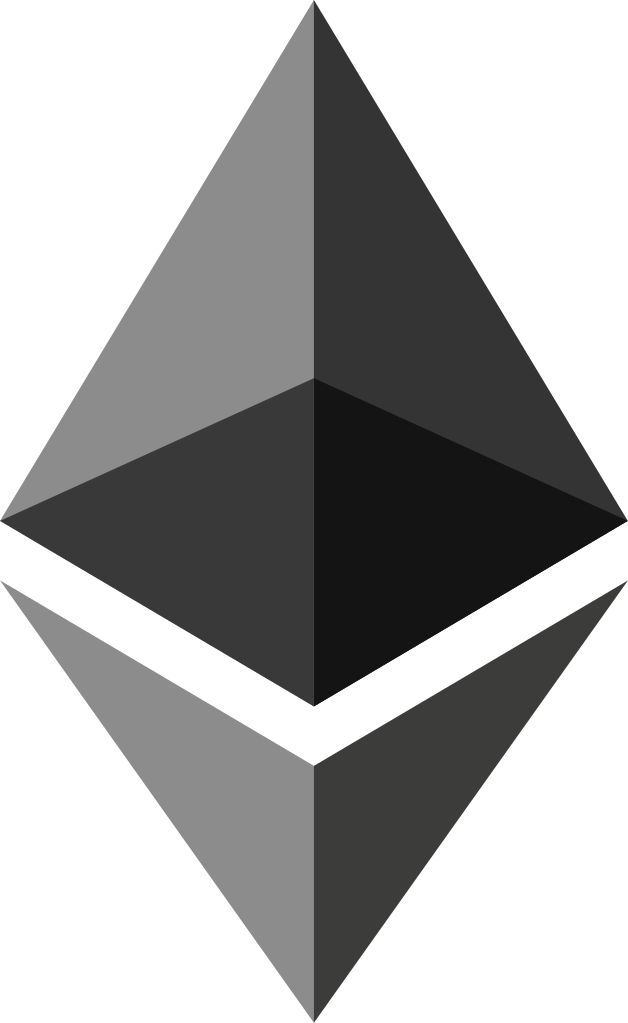Vergleichen Chainlink (LINK) vs Ethereum (ETH) Coin
This article is aimed at uncovering the differences and similarities between two significant cryptocurrencies in today's digital age, Chainlink (LINK) and Ethereum (ETH). While both have their distinct features and influence on the blockchain technology ecosystem, such a comparison can provide keen insights into their applications, benefits, and potential future developments.
User rating
Cryptogeek rating
Über
|
ChainLink (LINK) ist die Landeswährung der ChainLink-Plattform. Es stellt ein ERC-20-Token dar, das an mehreren Börsen gelistet ist, die mit wichtigen Kryptos gepaart sind. Zum Zeitpunkt des Schreibens können Sie LINK gegen die Fiat-USD-Währung auf Coinbase Pro handeln.
Intelligente Verträge sind nicht in der Lage, selbst auf Daten zuzugreifen. Da die Verbindung dieser Verträge mit Daten über Knoten als Fehlerquelle angesehen wird, könnte die Verwendung eines dezentralen Dienstes eine Lösung sein.
Daher sieht das ChainLink-Projekt seine Mission in der Integration der Off-Chain-Daten in Smart Contracts durch ein zuverlässiges dezentrales Oracle-Netzwerk. LINK-Token kamen 2017 auf den Markt und die Währung schaffte es schnell zu den Top 50 Kryptowährungen nach Marktkapitalisierung. Später erreichte es die Top 20. ChainLink arbeitet mit einem großen Bankennetzwerk SWIFT zusammen.
|
Ethereum ist ein Innovationsnetzwerk, das seine eigene Blockchain mit seiner Kryptowährung (Ether oder ETH) bereitstellt. Diese Blockchain enthält dezentrale Anwendungen (DApps), die erstmals von Ethereum eingeführt wurden. Eine weitere Innovation dieser Plattform ist die Implementierung intelligenter Verträge, die die Wahrnehmung der möglichen Nutzung der Blockchain verändert und das Potenzial der Technologie voll ausgeschöpft hat.
|
Art
Gründungsdatum
Land
Sprachen
Team
Protokoll
|
Public blockchain
|
Public blockchain
|
Aktueller Preis (USD)
Allzeithoch (USD)
Preisänderung (24h)
Volumen (24h)
|
Keine Daten
|
4104895897.05010
|
Hashrate
Max Versorgung
Gesamtangebot
Umlaufversorgung
|
Keine Daten
|
120708316.76639
|
Transaktionsgeschwindigkeit / Blockierungszeit
Transaktionsgebühr
Rentabilität des Bergbaus
Algorithmus
Proof-Typ
Voll prämiert
Intelligente Vertragsadresse
Insgesamt abgebaute Münzen
|
Keine Daten
|
111766505.06150
|
Ist Handel
Blockbelohnung
|
Keine Daten
|
2.000000000000
|
Zeit blockieren
| Über |
ChainLink (LINK) ist die Landeswährung der ChainLink-Plattform. Es stellt ein ERC-20-Token dar, das an mehreren Börsen gelistet ist, die mit wichtigen Kryptos gepaart sind. Zum Zeitpunkt des Schreibens können Sie LINK gegen die Fiat-USD-Währung auf Coinbase Pro handeln.
Intelligente Verträge sind nicht in der Lage, selbst auf Daten zuzugreifen. Da die Verbindung dieser Verträge mit Daten über Knoten als Fehlerquelle angesehen wird, könnte die Verwendung eines dezentralen Dienstes eine Lösung sein.
Daher sieht das ChainLink-Projekt seine Mission in der Integration der Off-Chain-Daten in Smart Contracts durch ein zuverlässiges dezentrales Oracle-Netzwerk. LINK-Token kamen 2017 auf den Markt und die Währung schaffte es schnell zu den Top 50 Kryptowährungen nach Marktkapitalisierung. Später erreichte es die Top 20. ChainLink arbeitet mit einem großen Bankennetzwerk SWIFT zusammen.
|
Ethereum ist ein Innovationsnetzwerk, das seine eigene Blockchain mit seiner Kryptowährung (Ether oder ETH) bereitstellt. Diese Blockchain enthält dezentrale Anwendungen (DApps), die erstmals von Ethereum eingeführt wurden. Eine weitere Innovation dieser Plattform ist die Implementierung intelligenter Verträge, die die Wahrnehmung der möglichen Nutzung der Blockchain verändert und das Potenzial der Technologie voll ausgeschöpft hat.
|
| Art |
Art
token
|
Art
coin
|
| Gründungsdatum |
Gründungsdatum
2017
|
Gründungsdatum
2015
|
| Land |
Land
Keine Daten
|
Land
Canada
|
| Sprachen |
Sprachen
Keine Daten
|
Sprachen
Keine Daten
|
| Team |
Team
Public
|
Team
Public
|
| Protokoll |
Protokoll
Public blockchain
|
Protokoll
Public blockchain
|
| Aktueller Preis (USD) |
Aktueller Preis (USD)
Keine Daten
|
Aktueller Preis (USD)
4718.9512
|
| Allzeithoch (USD) |
Allzeithoch (USD)
Keine Daten
|
Allzeithoch (USD)
1432.8800
|
| Preisänderung (24h) |
Preisänderung (24h)
Keine Daten
|
Preisänderung (24h)
2.93
|
| Volumen (24h) |
Volumen (24h)
Keine Daten
|
Volumen (24h)
4104895897.05010
|
| Hashrate |
Hashrate
Keine Daten
|
Hashrate
190120
|
| Max Versorgung |
Max Versorgung
Keine Daten
|
Max Versorgung
Keine Daten
|
| Gesamtangebot |
Gesamtangebot
Keine Daten
|
Gesamtangebot
Keine Daten
|
| Umlaufversorgung |
Umlaufversorgung
Keine Daten
|
Umlaufversorgung
120708316.76639
|
| Transaktionsgeschwindigkeit / Blockierungszeit |
Transaktionsgeschwindigkeit / Blockierungszeit
Keine Daten
|
Transaktionsgeschwindigkeit / Blockierungszeit
15
|
| Transaktionsgebühr |
Transaktionsgebühr
Keine Daten
|
Transaktionsgebühr
Keine Daten
|
| Rentabilität des Bergbaus |
Rentabilität des Bergbaus
medium
|
Rentabilität des Bergbaus
high
|
| Algorithmus |
Algorithmus
Keine Daten
|
Algorithmus
Ethash
|
| Proof-Typ |
Proof-Typ
Keine Daten
|
Proof-Typ
PoW
|
| Voll prämiert |
Voll prämiert
Keine Daten
|
Voll prämiert
Keine Daten
|
| Intelligente Vertragsadresse |
Intelligente Vertragsadresse
Keine Daten
|
Intelligente Vertragsadresse
Keine Daten
|
| Insgesamt abgebaute Münzen |
Insgesamt abgebaute Münzen
Keine Daten
|
Insgesamt abgebaute Münzen
111766505.06150
|
| Ist Handel |
Ist Handel
Keine Daten
|
Ist Handel
yes
|
| Blockbelohnung |
Blockbelohnung
Keine Daten
|
Blockbelohnung
2.000000000000
|
| Zeit blockieren |
Zeit blockieren
Keine Daten
|
Zeit blockieren
15
|
Sozial
Webseite
Twitter
Vorteile
|
Technologische Fähigkeiten
Bietet dezentrale Orakel
Signifikante Präsenz in sozialen Netzwerken
|
Well-known Founder
An expanding developer community
More than a cryptocurrency
Continues to attract more businesses
|
Nachteile
|
Wenig Garantien für die Investoren
Wenig Kommunikation über weitere Entwicklungen
|
Struggles with scaling
Uses a complicated programming language
High transaction fees
|
Bewertung
| User rating |
User rating
5 / 5
3 Benutzerbewertungen
|
User rating
5 / 5
3 Benutzerbewertungen
|
| Cryptogeek rating |
Cryptogeek rating
4.2 / 5
|
Cryptogeek rating
4.6 / 5
|
| Vorteile |
Vorteile
Technologische Fähigkeiten
Bietet dezentrale Orakel
Signifikante Präsenz in sozialen Netzwerken
|
Vorteile
Well-known Founder
An expanding developer community
More than a cryptocurrency
Continues to attract more businesses
|
| Nachteile |
Nachteile
Wenig Garantien für die Investoren
Wenig Kommunikation über weitere Entwicklungen
|
Nachteile
Struggles with scaling
Uses a complicated programming language
High transaction fees
|
Chainlink (LINK) Benutzerbewertung ist 5, basierend auf 3 Benutzerbewertungen. Ethereum (ETH) Benutzerbewertung ist 5, basierend auf 3 Benutzerbewertungen.
We also calculate the special Cryptogeek TrustScore based on the characteristics of each coin.
Wählen Sie andere Unternehmen aus
After an in-depth analysis of Chainlink (LINK) and Ethereum (ETH), it's clear that the two cryptocurrencies, each have their unique value propositions and use cases. While Ethereum primarily focuses on enabling smart contracts and decentralized applications with its more general-purpose blockchain, Chainlink facilitates secure and reliable connection between blockchains and real-world data. Each has its place in the greater blockchain ecosystem and is shaping our technological future in distinct ways. The decision to use, invest or follow either of them really depends on individual preferences and goals.
This article is aimed at uncovering the differences and similarities between two significant cryptocurrencies in today's digital age, Chainlink (LINK) and Ethereum (ETH). While both have their distinct features and influence on the blockchain technology ecosystem, such a comparison can provide keen insights into their applications, benefits, and potential future developments.

